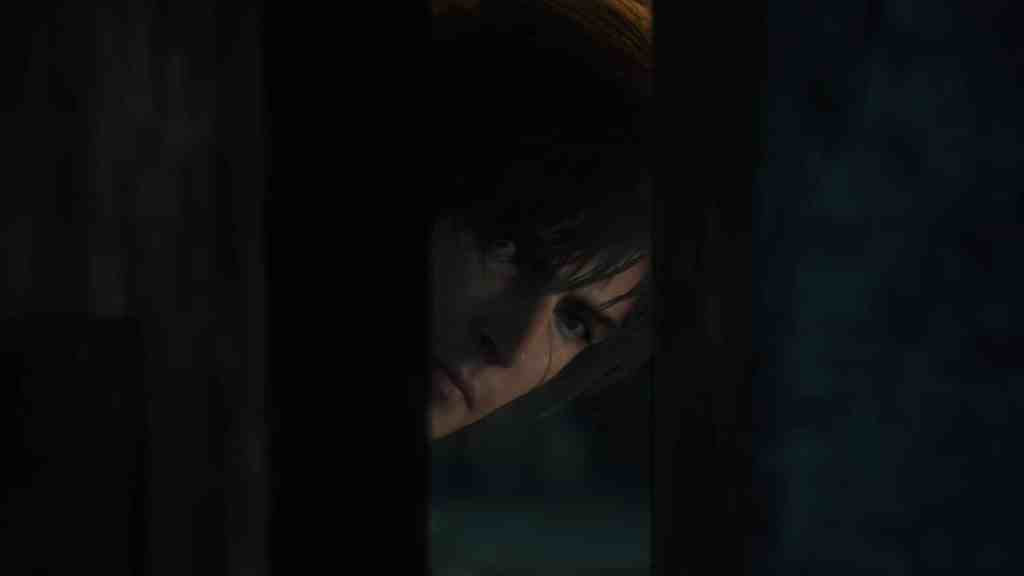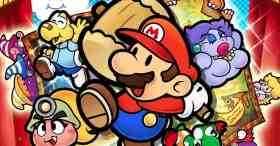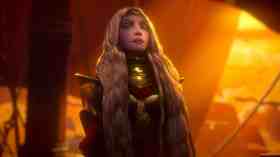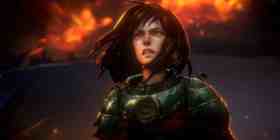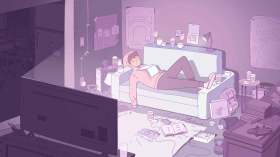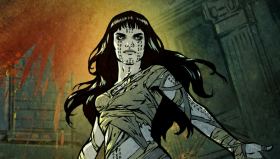Final Fantasy 16 sees Square Enix taking a dramatically new direction for the iconic RPG series, seemingly to broaden the game’s appeal for a wider audience – especially those who have never played a Final Fantasy game. Among the sweeping changes: a real-time action combat system in the vein of Devil May Cry, a hard fantasy setting, performance capture that prioritised English-language performances, and a ‘Mature’ age rating for the very first time.
In a group interview, GamesHub spoke to several members of the FF16 development leadership team after playing a hands-on demo of the game. Producer Naoki Yoshida (Final Fantasy XIV, Dragon Quest X), Director Hiroshi Takai (Final Fantasy XIV, The Last Remnant), Combat Director Ryota Suzuki (Devil May Cry, Dragon’s Dogma), and Localization Director Michael-Christopher Koji Fox (Final Fantasy XIV) were all present to share their insights.
Read: Final Fantasy 16 preview: A complete rejuvenation of the series
The team discussed the rationale behind Final Fantasy 16’s holistic approach, spoke about the perception of the Final Fantasy series in contemporary times, and discussed how they’re working to change that. They also shared some insight into new approaches in the narrative development process, as well as some previously undisclosed tidbits on their favourite characters and easter eggs.
- The image of Final Fantasy has changed
- On the Western feel and identity of Final Fantasy 16
- What makes a Final Fantasy game?
- Final Fantasy 16’s primary influences
- On creating a more mature Final Fantasy
- The writing and world building process
- Favourite characters in Final Fantasy 16
- How Final Fantasy 16’s gameplay will flow
- Biggest challenges throughout development
- Easter eggs in Final Fantasy 16
Note: The following quotes have been edited for clarity. Japanese language translations were provided by Final Fantasy 16 Localisation Director, Michael-Christopher Koji Fox.
The image of Final Fantasy has changed
Naoki Yoshida, Producer: With Final Fantasy 16, I kind of wanted to change the image of Final Fantasy, of the series as a whole.
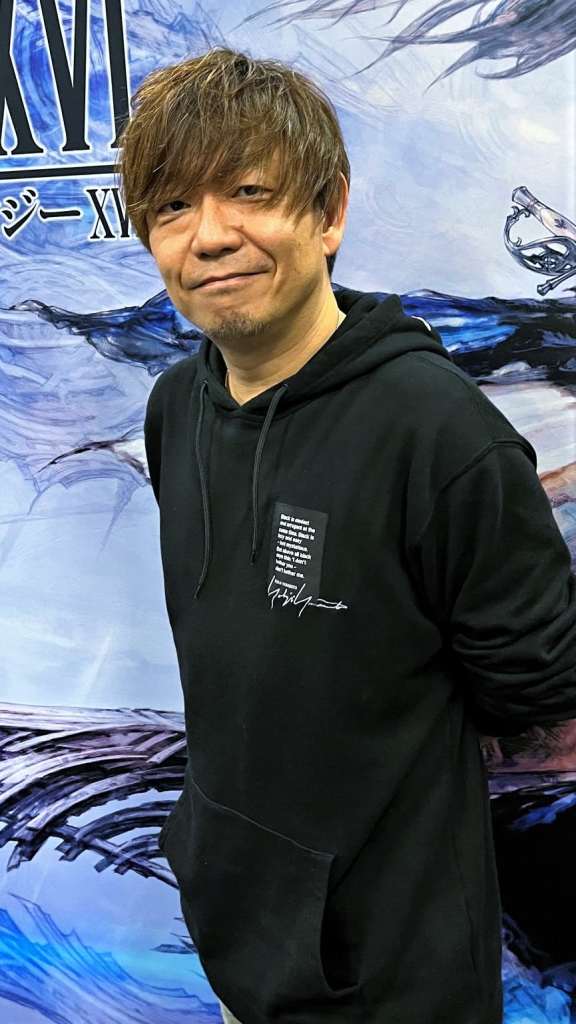
Over the past few years, I’ve been able to travel around the world and speak with players and media from around the world, and ask them their opinions on the series and what they think of this series. And I found that their views of the series as a whole had stagnated, that the series has become this kind of fossilised thing where Final Fantasy is always going to be a ‘JRPG’. It’s always going to have that anime art style, it’s going to have teens saving the world, it’s going to be turned-based, and it’s going to feel kind of old and classic.
A lot of players out there think that this is what the Final Fantasy series is and what it only is.
And while they know of the Final Fantasy series, it’s just not something that they’re interested in playing – it doesn’t have that kind of hook that wants to bring them into the series, especially because a lot of younger gamers – those gamers that have grown up playing first-person shooters and grown up playing the [Grand Theft Auto games] – it’s no longer a series that’s tantalising for them.
What we wanted to do is we wanted to change that up and create something that excites those players as well – not just the legacy players – and shows these players that have not been a part of the Final Fantasy series and don’t know the Final Fantasy series the true potential of the series and how great it actually is.
But then again, we don’t want to create something that is going to alienate those existing fans, the fans that have stuck with this series for a long time – they’re important. Or the fans that maybe aren’t as good at action games. I think that we’re making something that’s going to be accessible to those existing fans, and it’s going to feel familiar for them as well.
On the Western feel and identity of Final Fantasy 16
Naoki Yoshida, Producer: We didn’t necessarily go out of our way to give the game a Western field. It wasn’t one of our goals, it just happens to be that a lot of the people on the development team really, really like that kind of high fantasy type of feel.
This is all about creating games that we liked, and wanted to make. And that’s kind of translating over into the overall game. A lot of players that know the series will have entered the series from around Final Fantasy 7 or Final Fantasy 8, at a period of time when the series kind of was shifting to more of a modern sci-fi type of feel.
So a large portion of the fan base has the sense that the series is something that’s more modern, something more sci-fi oriented. But for us who grew up with the classic Final Fantasy, from Final Fantasy 1 to Final Fantasy 6, the Final Fantasy series has always been about high fantasy for us.
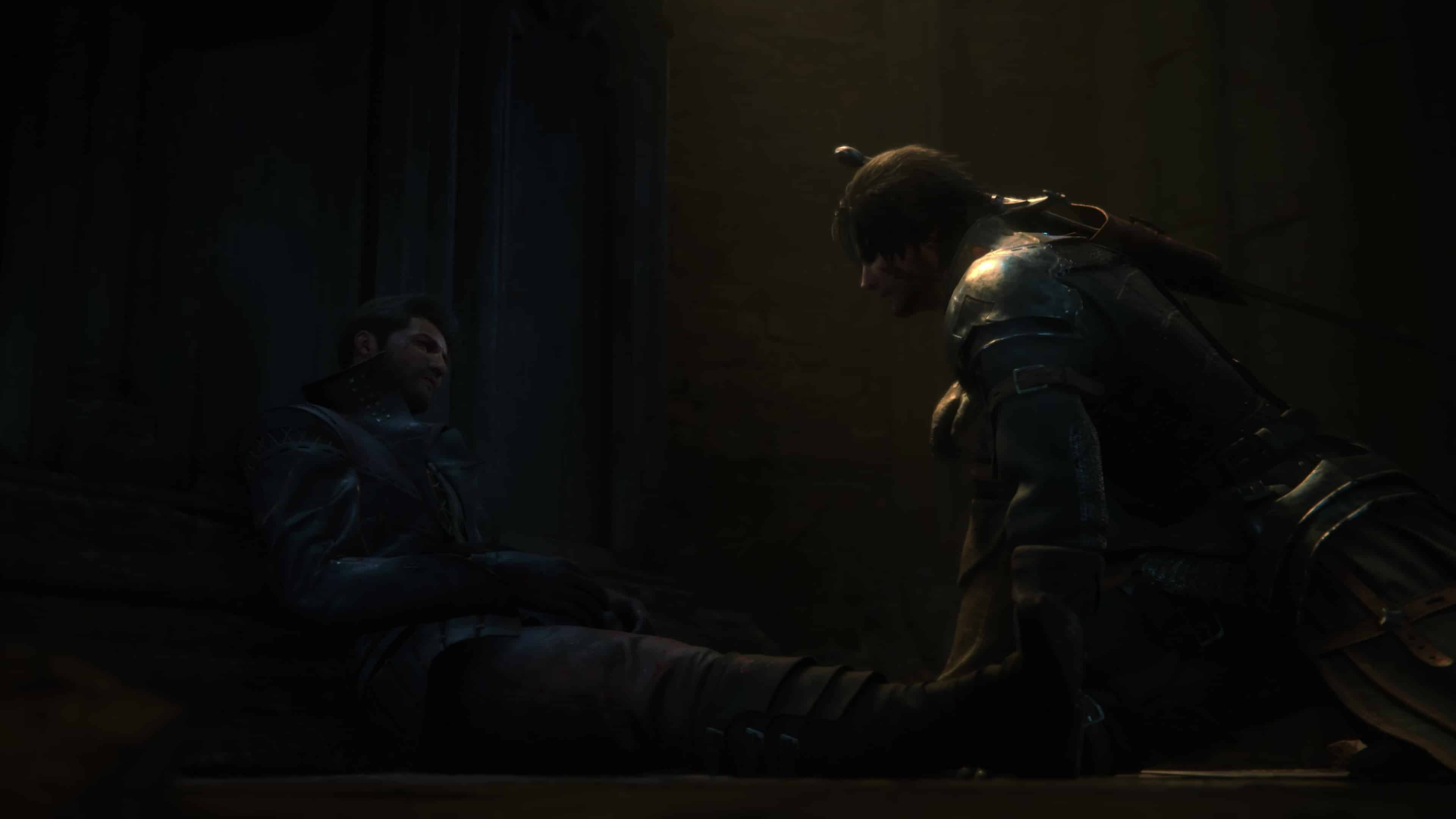
Creating something that resonated with us, something that we spent a long period of our lives playing, is just something that ended up being natural for us, and that’s why we ended up creating 16, which felt like those older games.
And then, in regards to Final Fantasy 16 moving more to an action-based style feeling more in line with Western games – Again, I think this is kind of in part due to the fact that a lot of the games that we as developers play are those types of games. We play a lot of Western games, we play a lot of action games, and so it’s just kind of natural that those things that we play and enjoy are coming out when we create a game ourselves.
What makes a Final Fantasy game?
Naoki Yoshida, Producer: As you know, each Final Fantasy is unique in its nature, from Final Fantasy 1 through Final Fantasy 16. I’ve had opportunities to speak a lot with the father of Final Fantasy, (Hironobu) Sakaguchi, as well as legendary directors such as (Yoshinori) Kitase, and one thing that I remember that Kitase told me is that Final Fantasy is basically what the director of that game is making at that time thinks is the best thing to do.
That’s what makes a Final Fantasy. It’s not what came before, there aren’t any rules. You don’t have to have crystals or Chocobos or Moogles. It’s basically what you want to create and what you think is going to be the most interesting at the time of creation. With each game and with each creator you’re gonna get something different.
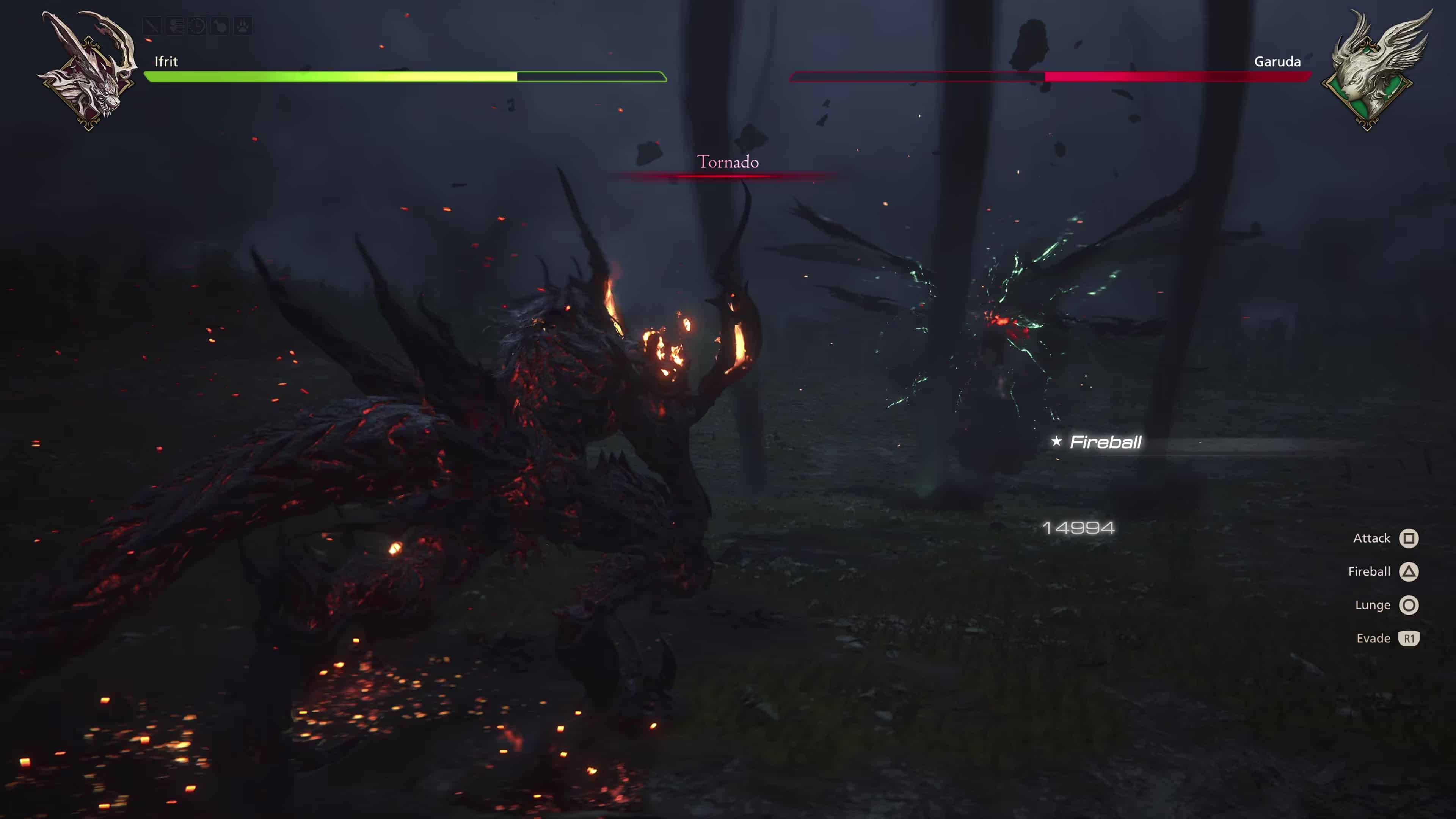
So when players you know finally get to play Final Fantasy 16 and play through the game you know if they come out of the experience saying that ‘Wow, Final Fantasy has really evolved as a series.’ We as developers will be happy. However, whether any of that translates over into Final Fantasy 17 or not… Again, it’s going to fully depend on whoever’s director on Final Fantasy 17.
Final Fantasy needs to have a great narrative. But that is it needs to have a deep and engaging and voluminous game experience. It needs to have a great combat system. It needs to have great sound and great graphics.
And then, of course, Chocobos and Moogles.
Hiroshi Takai, Director: I really think Final Fantasy needs to have that engaging story where you always want to see what’s coming next. You have high-quality graphics that kind of push the technology that exists at that time. But for me, you also need to have something new. Final Fantasy is always about challenging things and trying something that hasn’t been done before. And then when you have all of that the cherry on top is that the magic names are going to be the same as they always have been.
Ryota Suzuki, Combat Director: For Final Fantasy 16, that challenge is definitely the action system. I think we’re bringing something that’s very unique and new to the series.
Final Fantasy 16’s primary influences
Naoki Yoshida, Producer: For me, it’s the books of A Song of Fire and Ice, as well as the television series Game of Thrones.
Hiroshi Takai, Director: Game of Thrones for me as well, but for games – God of War, It’s really inspiring.
Ryota Suzuki, Combat Director: Well, it’s not like I went out of my way to put these into the game and draw direct inspiration from them, but because I enjoy them, they’ve definitely inspired me. It would be the John Wick movies as well as Blade. Things you can probably feel in what I’ve created.
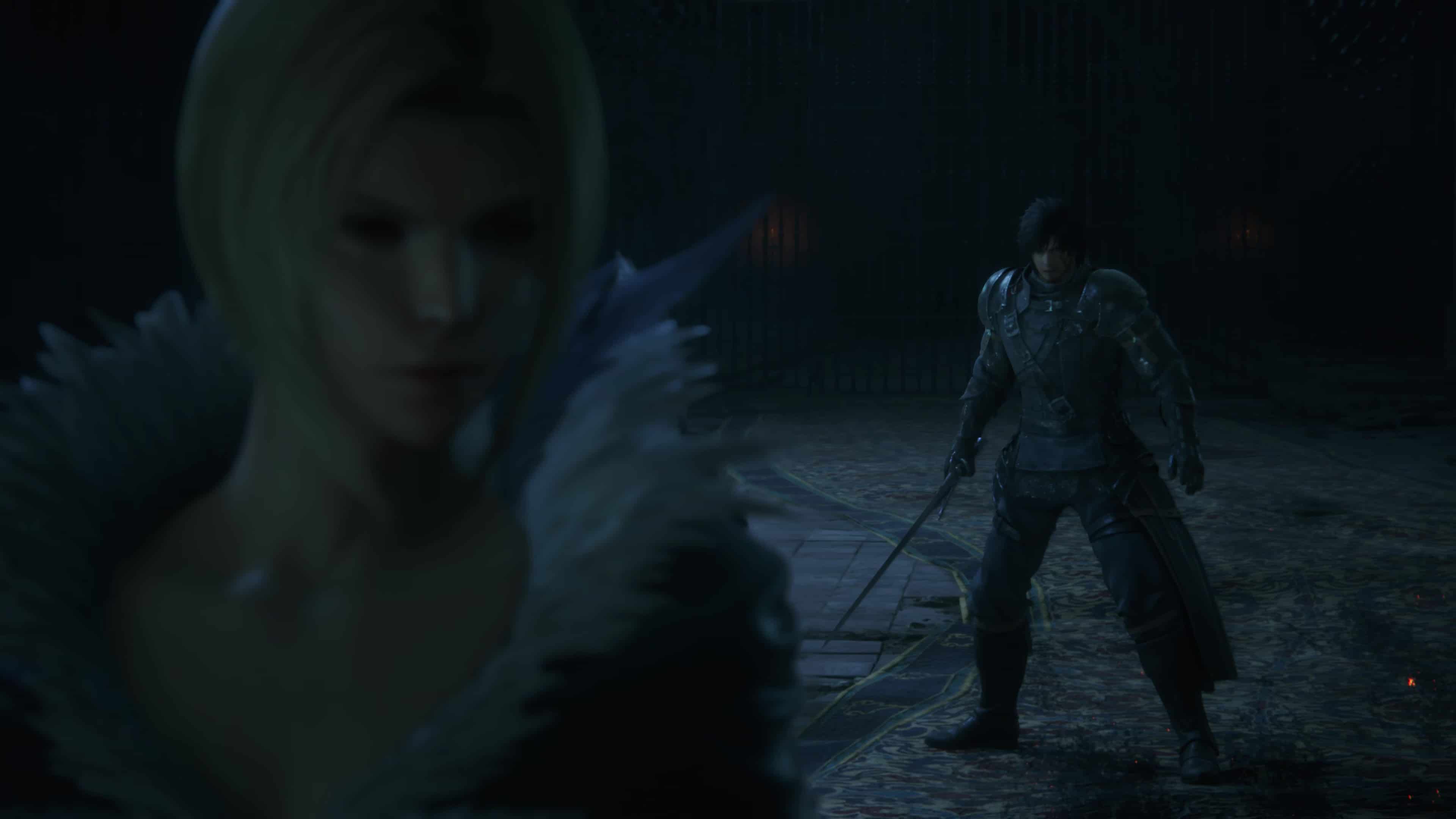
Hiroshi Takai, Director: Again, there’s probably a lot of stuff that we haven’t said, but because we enjoy it and play it, without even realising it, parts of those things are coming up.
Naoki Yoshida, Producer: When you look at the Eikon vs. Eikon battles you’re gonna see similarities to things like Godzilla, Ultraman, [Neon Genesis] Evangelion, Attack on Titan, all those things that we as people enjoy, and you’ll see bits of that because we love those types of shows.
On the story side, I happen to be a big fan of Christopher Nolan. And The Dark Knight is one of my favourite movies of all time. I really enjoy how you have the relationship between Batman and Joker and how you know you have the dark and the light, but one can’t exist without the other. And that type of theme you can see in Final Fantasy 16‘s narrative as well.
On creating a more mature Final Fantasy
Naoki Yoshida, Producer: This year, unfortunately, I’m going to be 50 years old. Living so long, you understand that the world isn’t always a great place. The world has its good, but it also has its bad. And it has where it has its light, it also has its dark.
I mentioned before how this is really important to me – I understand that one can’t exist without the other. And so I didn’t want to create a game that ignored one because it would have been easy to create a game that only shows the good. But then I think that by showing the dark, it shows how important the light can be.
And so we wanted to create something where it didn’t shy away from that. By showing the dark, we’re showing that this is the true world, and we’re not telling a lie in that sense. But again, while the game has this dark feel to it, we do move towards an ultimate message that shows when there is dark, there’s going to be light. And when there’s light, there can be hope.
And so hopefully, by the time the player gets to the end of the game, they’ll have this sense that there is hope for a better tomorrow even in the dark.
The writing and world building process
Michael-Christopher Koji Fox, Localization Director: As you know, the main writer is Kazutoyo Maehiro, who has worked a lot with Yasumi Matsuno (Vagrant Story, Final Fantasy Tactics, Tactics Ogre) in the past and you know, Matsuno stories usually have that very heavy edge to them, always talking about the reality and the dark sides and these extremely complex stories with lots of different factions, and talking about difficult decisions.
I think you can see that in the story that Maehiro created this time. And then basically, I got the opportunity to get to take that, and while translating it into English, work with Maehiro to kind of come up with something that’s going to feel very natural, and doesn’t feel like a translation, like it originated in both languages, creating something that’s going to be not only natural for the players of the Japanese version, but feel like it originated in English for the Western version.
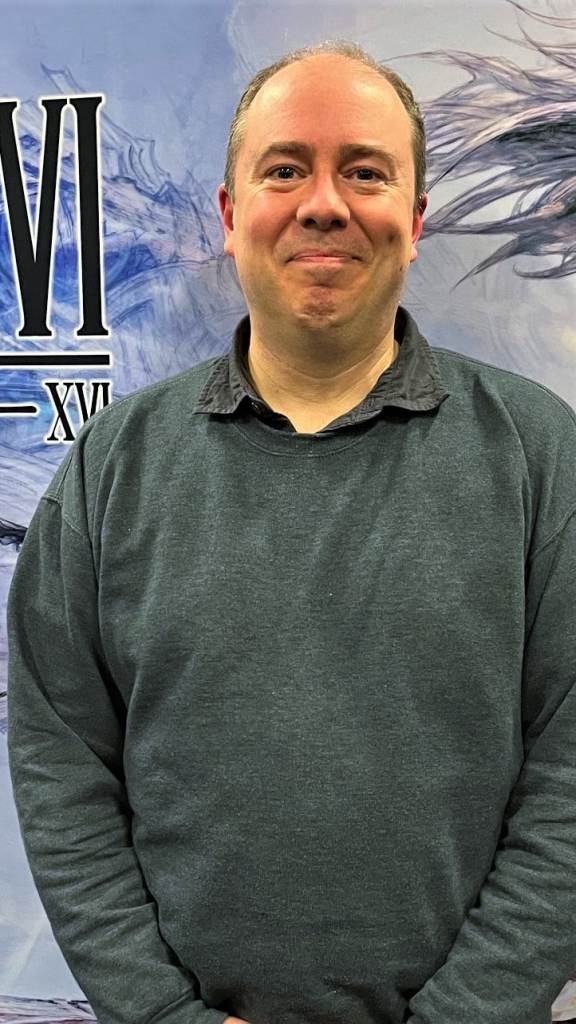
And so it was basically a lot of: he would write the story, I would translate it, and then we would get together, and we would go over every single line saying, ‘Okay, in English, I’ve kind of translated this way.’ And it’s like, ‘Okay, that’s good, maybe we can change that back and change that into something that’s going to work better in the Japanese and create something that feeds off of each other.
And then from there, we recorded the English first, and we did facial capture off of the English voices. And so the lip flaps match the English version very well, and this is because rather than having the Japanese first, we were able to do that for English.
But that said, the Japanese team, after we had recorded the English and did the face capture, then they did their Japanese stuff. And they basically were in the studio rewriting every line to make it fit perfectly to what was there in the English version.
And so a lot of time and effort was spent on some of these – we were doing maybe only a couple of lines an hour, because we wanted to make them perfect in the studio, and I think that’s going to come across not just on the English version, but in the Japanese versions, and all of our voice languages versions. They all went in and tried to create something that’s going to feel natural in all of the languages, rather than just having a source language and having everything dubbed off of that.
And then as for the world creation I think that we have a very exciting story, we talk about roller coasters and how the story just kind of pulls you along. You have this wonderful narrative that you’re going to be able to get excitement out of just by playing the narrative, but what’s going on in the rest of the world?
There’s always that thing of if you want the world to feel real, you can’t just concentrate on that main scenario, you need to concentrate on the side things as well. And I think that we did a great job of trying to create stories for everyone in the world and not just the main scenario.
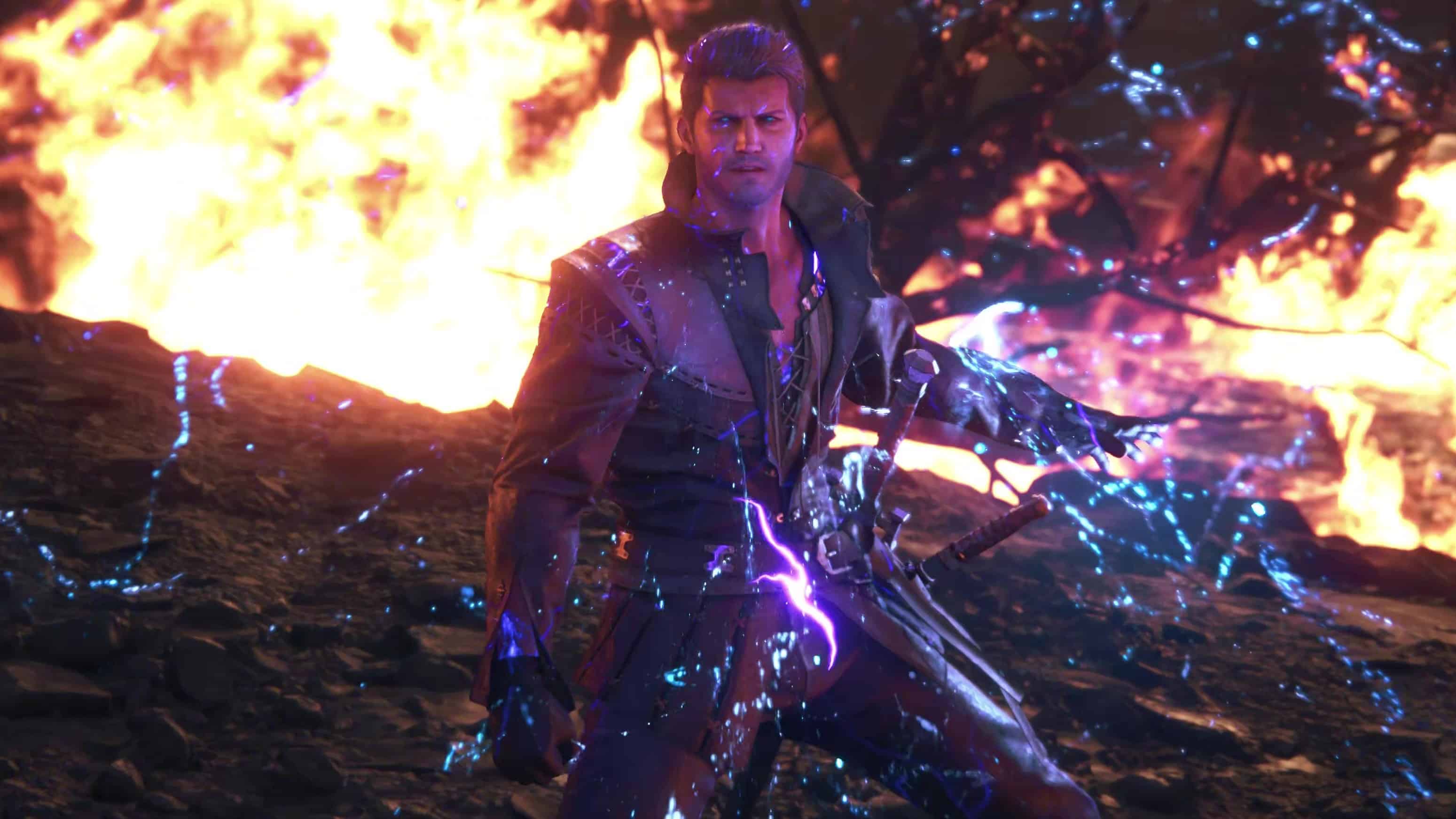
And so those players that want to ride that roller coaster and knock it off, they’re going to be able to have this exciting experience and are going to have this wonderful story from beginning to end. But every now and then, some players are gonna be like ‘I want to get more into the story.’ There are gonna be opportunities to get off that roller coaster and learn more about the story via the stories that you have on the side. You’re going to learn more about the people in the world, why people are certainly feeling certain things, and how people are reacting to these realm-changing events that the hero is experiencing. But how does that affect this person that lives in this town over here? We know how the war affects Clive, but how does it affect the people that live in this town?
But on top of that, to make the world feel real, you have to create things, and reasons for how we got to this point as well. So we’ve created this whole history for this world as well, and not just created it, but we have it available in the game for players that want to access that. We have lots of opportunities to go in and we have features where you can press pause during any cutscene, and we’ll bring up a lore feature that will basically allow you to check up on what’s going on in the scene.
For example, if someone is talking and they say a name during the cutscene, you can press pause, and immediately check: Who was that? What is their past? What did they do before this? And then, you go down that Wikipedia dive, where you’re like ‘okay, you’re gonna learn about this person.’ And then another word comes. ‘Okay, I’m gonna learn about this, I’m gonna learn about this,’ all while you’re playing the game.
Again, this is stuff that’s not going to be necessary for most players – they can just focus on the story, and they’ll be able to get to the end without this. But we have all of this supplementary information for those that want to do the deep dive into the game and learn about it. And so we’ve created this whole world that feels very real and very alive.
Favourite Characters in Final Fantasy 16
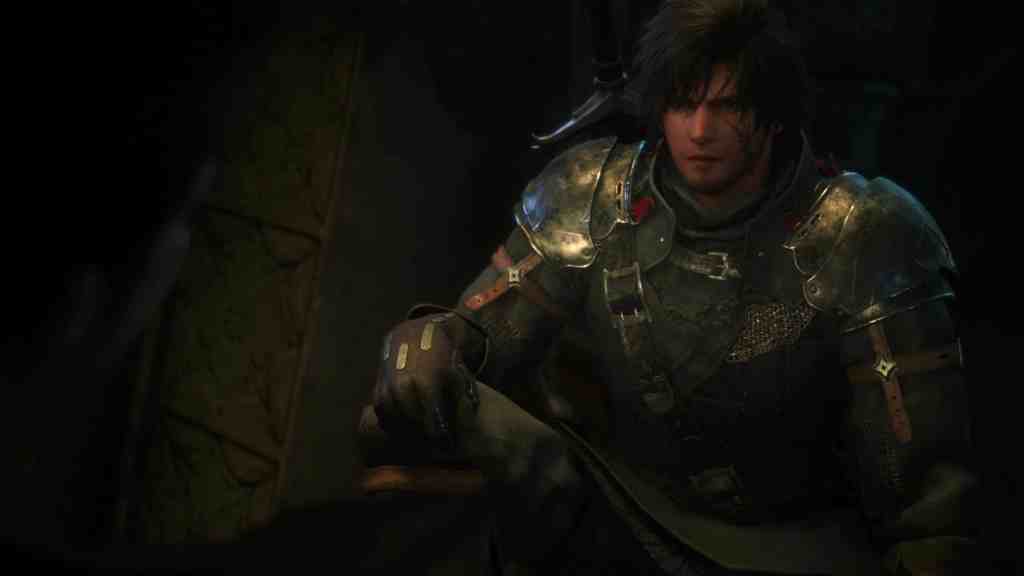
Naoki Yoshida, Producer: [In the demo we showed], Clive is still obsessed with revenge, he’s still kind of a one-dimensional character in that sense. But as you progress with the story, you’ll get to see Clive change. He’s not always this character that’s obsessed with just this one thing and doesn’t care about anything. You get to see him when he’s young, see what changes him and sends him down this path. And then you get to see him on this path of revenge. And then you get to see him through his encounters with other characters, and how he kind of opens up his eyes, sees what’s going on in the rest of the world. I think that over time, you’ll find that Clive is going to be one of the characters that I think a lot of players are going to end up really, really liking because he does change so much. And that journey he goes through in his life is going to resonate with people
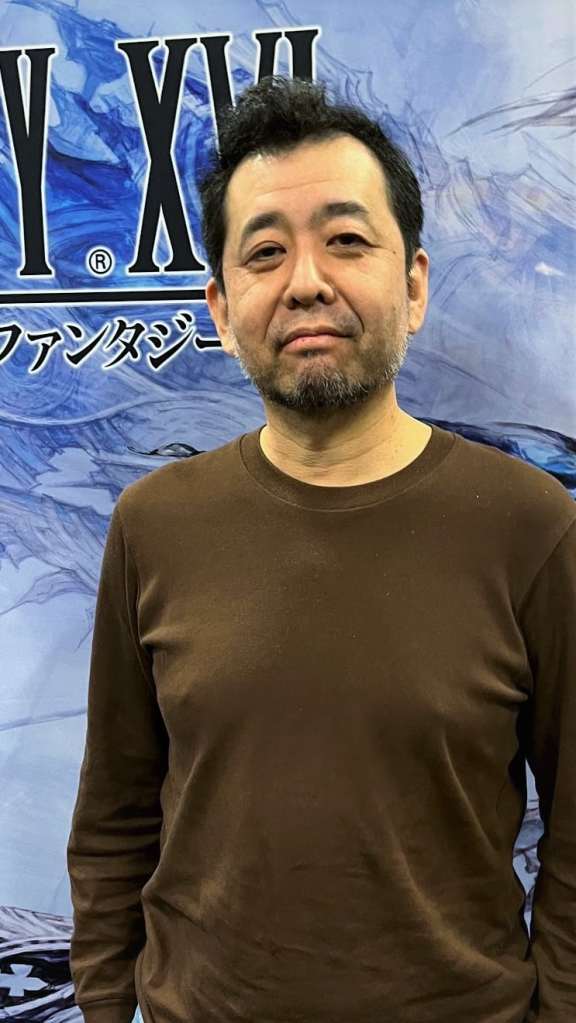
Hiroshi Takai, Director: My favourite is a character that again we haven’t mentioned before, but there’s this character named Byron who I really really like. He’s an older character, but he’s a great character that just makes you feel good. He’s there to make you laugh, and story-wise he’s there to support Clive, so he’s a good companion in that sense. But the scene in which he is first introduced to Clive – it doesn’t matter how many times I’ve watched that scene. I always cry. It’s such a great scene. So again, I can’t tell you too much about the character but please focus on the character named Byron
Ryota Suzuki, Combat Director: For me, it also has to be Clive, not just because of his story, but because I’ve been working on creating him for the past three years. Having spent every single day of my life with him, he has a special place in my heart.
Michael-Christopher Koji Fox, Localisation Director: There are a lot of great characters in the game, and because it’s a mature game, I got to let some of them swear, which has been fun. In Final Fantasy games, it’s always been rated Teen, so you have to be careful with the language. But this is the first numbered Final Fantasy that is (rated) Mature, and so we got to have a little bit more fun. We don’t go too over the top, but it was great to have somebody yell ‘FUCK!’ when a situation calls for saying words like that.
That said, there is one character that I really enjoyed writing for, but also doing the voiceover for. There’s a shopkeep that I won’t say the name of yet because it’s a little bit of a spoiler, but there’s a shopkeeper that Clive will encounter on his adventures. And the voice actor that we got for her is just one of the most amazing voice actors I’ve worked with. We had kind of an image of what we wanted the character to be like, but then once she took it and gave it a voice, that affected how we translated lines after that, because she basically made it hers.
And it’s so wonderful. She’s an older character, she’s probably in her 60s or 70s, and she’s just seen everything. And so you have Clive that’s just like ‘oh, my life is so tough, the world is ending, what are we going to do?’ And she’s just like, ‘What! You young uns. I’ve seen it all! Things will be fine, just buy something and get out of here.’
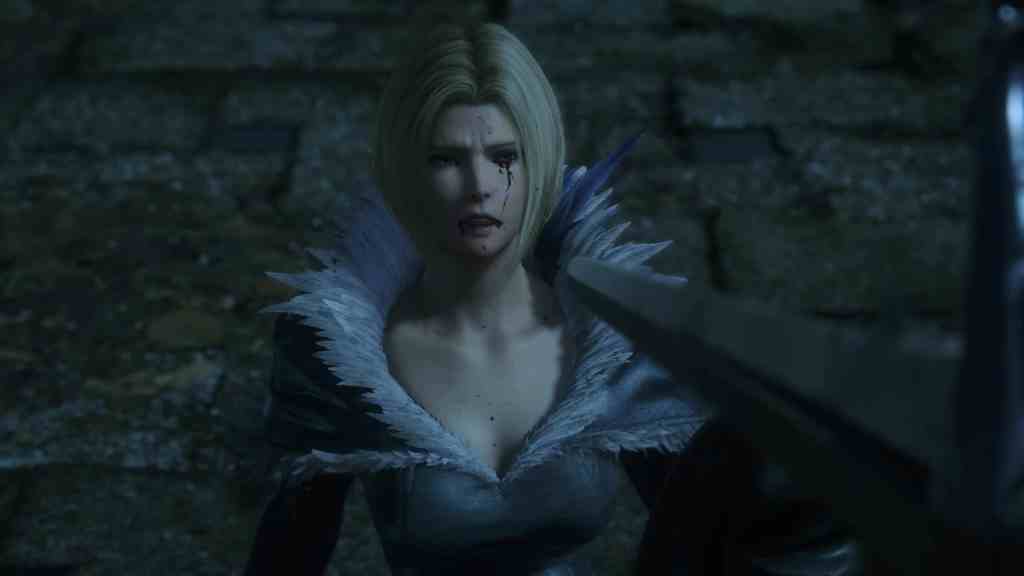
Clive takes himself so seriously at times, and she doesn’t take that and is the great old aunt that puts him in his place. And then the way she does that with her wonderful Northern accent is, I think, something that’s going to hopefully make a lot of players smile. Her name is Charon, but I can’t say any more than that. Keep an eye out for her, she’s just a wonderful character.
Naoki Yoshida, Producer: We saw here with Charon and Byron… we talked about how the Dominants are a focal point of this story, and we go into their motivations and their arcs. But outside of the Dominants, we have this great cast of characters with all these different motivations and backgrounds, and we get to explore those throughout the story. It’s not just a story about Clive, it’s not just a story about the Dominants, it’s a story about the whole world.
How Final Fantasy 16’s gameplay will flow
Naoki Yoshida, Producer: How the game’s cycle works is that you have a main world map, just like God of War (2018). And in the centre of it, you’ll have this hub. As the story progresses, new areas will unlock, and Clive will go to that area to progress. You’ll go there, you’ll play that stage, and when that’s finished, you have the opportunity to return back to the hub. Here at this hub, you can either choose to continue the main scenario, unlock new areas, or you have opportunities for side quests, where you go back to areas that you’ve already visited, and have that side content there.
You have these three distinct eras in the game. And as the story progresses, you’ll go to that next act, go from [Clive’s] 20’s to his 30’s. You won’t be able to go back in time. But you will be able to go back to the areas that you once visited earlier, and you will see how they have changed.
Hiroshi Takai, Director: In addition to that, there is an opportunity for players to go back and replay stages that they’ve already played, so in a sense, go back and see something that happened earlier in the game and retry and replay. If you think ‘Oh I want to fight that boss again,’ there’ll be the opportunity to do that.
Naoki Yoshida, Producer: In addition to that, there will also be an opportunity to replay stages for a score as well, which we call arcade mode.
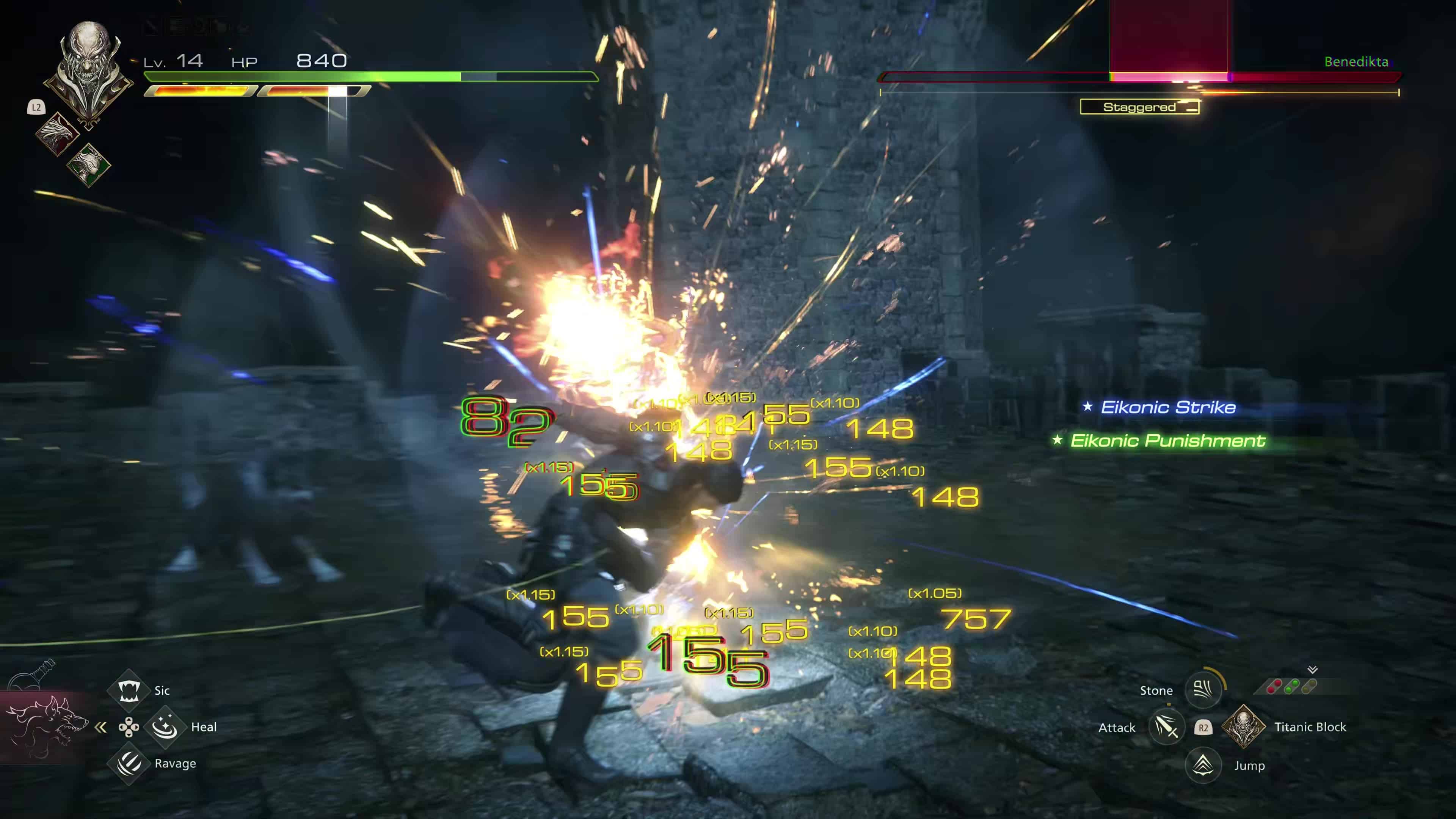
Biggest challenges throughout development
Naoki Yoshida, Producer: The budget was the most frustrating for me as producer (laughs) And because we still haven’t released the game yet, this is still something that we haven’t overcome. And so hopefully we can tell you soon that we’ve figured this out and everything’s alright, but we can’t until the game is released.
Hiroshi Takai, Director: For me, the biggest challenge was creating a game that tied everything together seamlessly. We were able to create something, tied everything together and in this in a seamless fashion but optimising that and getting it to a point that we were proud enough to release it to the public was something that we’re still in the process of doing. We’re still in the process of optimising.
It took a lot of tuning, a lot of adjustments. Currently down on the 11th floor they’re currently continuing to tune optimization right up until the end of QA, to make something that is going to feel truly seamless and truly feel good while playing it, and I think that we’re almost there.

Ryota Suzuki, Combat Director: I focused on creating this battle system and trying to create something that was unique. As you know, Clive earns his different abilities sets through his encounters throughout the story. And ultimately, we’ll be able to get these abilities from all the different Eikons. When creating these sets of abilities for each of the Eikons, we wanted to create something that felt really unique for each one of them, that wasn’t just simply a copy of another.
And also making sure we weren’t creating one that’s going to be the strongest one, but having them all be unique, and all be equal, yet different. Something that is going to allow users to choose which ones they like, and put these combinations together, and still be unique for each user. And also creating something that allows for this type of freedom that each player can create, bring in something that’s going to fit them the best, and is going to be unique from what someone else chooses.
Michael-Christopher Koji Fox, Localization Director: The most challenging thing for me, was that this is the first time I got to do facial capture. So it was a new kind of experience in that sense of trying to not only get the lines delivered in a way that felt natural, but also focus on facial movements as well, and doing this a lot of times.
Before we even had the cutscenes finished, I would have to kind of imagine what was going to be in the cutscene. Then you’d be in the studio with the actor, and kind of have to explain that, ‘Okay, this is what it’s going to look like in the end, and you kind of need to be looking over there, and then look over there, and then you need to have these type facial motions.’
A lot of times when you do voice acting, you just concentrate on the voice. But when you have facial capture, those little tics, like the raising of an eyebrow or the furrowing of a brow, or something like that – these are all things that now you have to kind of pay attention to.
So for me, that was a big challenge, because I can’t just keep my eye on the script, listen, and say ‘Okay, that’s great.’ Now I have to watch as well and keep the actor motivated. ‘Okay, he’s looking in the right direction, and he hits the beat, and he matched the action. Okay, but we were 0.5 seconds too short. So let’s do it all again.’
At the beginning, it was just kind of like, ‘What are we doing here?’ But towards the end, we kind of got it down. It was a big challenge to do that, but it was exciting. And I look forward to doing it again, if I get the chance. But I wouldn’t wish it upon anyone (laughs). Just because it’s a lot of work.
Easter eggs in Final Fantasy 16
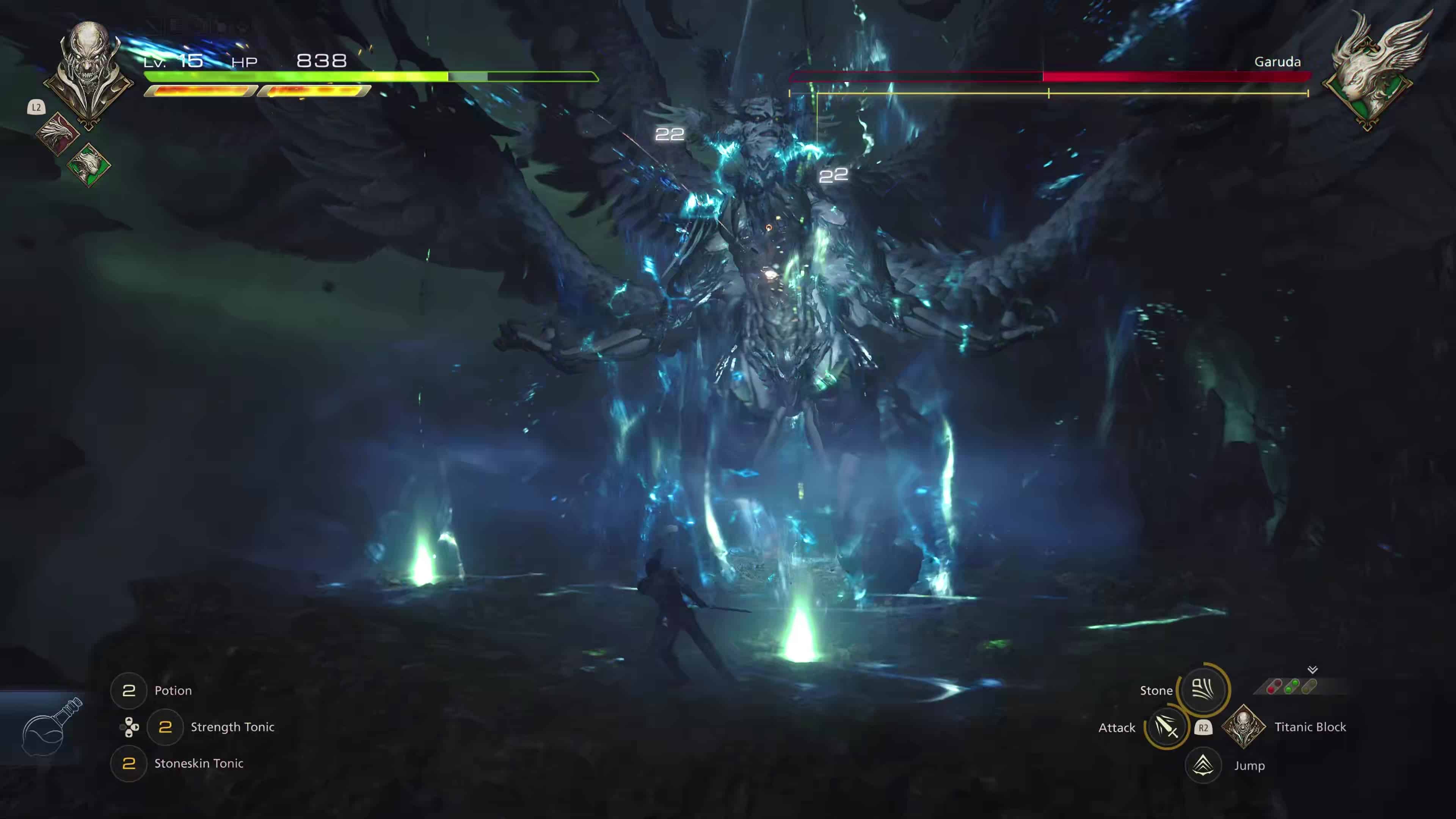
Naoki Yoshida, Producer: There’s so many things that we’ve added in, it’s hard to pick one to talk about at this point. And also there’s a lot of spoilers.
Michael-Christopher Koji Fox, Localization Director: I worked on Final Fantasy 14 for a long time, and a lot of players have come to expect some really bad puns. Like pop culture references in the game that are going to make people groan. And I can assure the players that there will be lots of groan-worthy puns.
Again, because it’s a darker, more serious game, in the actual game itself, we don’t want to put that in because I feel that would detract from the story. But things that are only for the player, like quest names, achievement names and things like that – I tried to get in as many dad jokes and puns as possible, whether it be references to older Final Fantasies or weird pop culture references, or strange, dank memes… there’s going to be lots of good stuff in there.
Naoki Yoshida, Producer: This is something that all of us on the development team kind of do without letting the director or the producer know. We just kind of put it in, and then during his playthroughs he’ll be like, ‘Hey…’
Hiroshi Takai, Director: [Masayoshi] Soken-san, for the soundtrack – without getting approval, he’ll just put in melodies and things from past titles.
Naoki Yoshida, Producer: There’s a lot of easter eggs. Not just the ones that I put in there but a lot of the development team has. Lots of things that I think that the players of this series will really, really appreciate.
Final Fantasy 16 releases on 22 June 2023 for PlayStation 5.
Square Enix provided flights and accommodation to GamesHub for the purposes of playing Final Fantasy 16 and speaking to its developers. Square Enix did not have oversight of this article. GamesHub has affiliate links. These do not influence editorial content. GamesHub may earn a small percentage of commission for products purchased via affiliate links.
